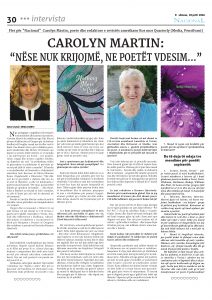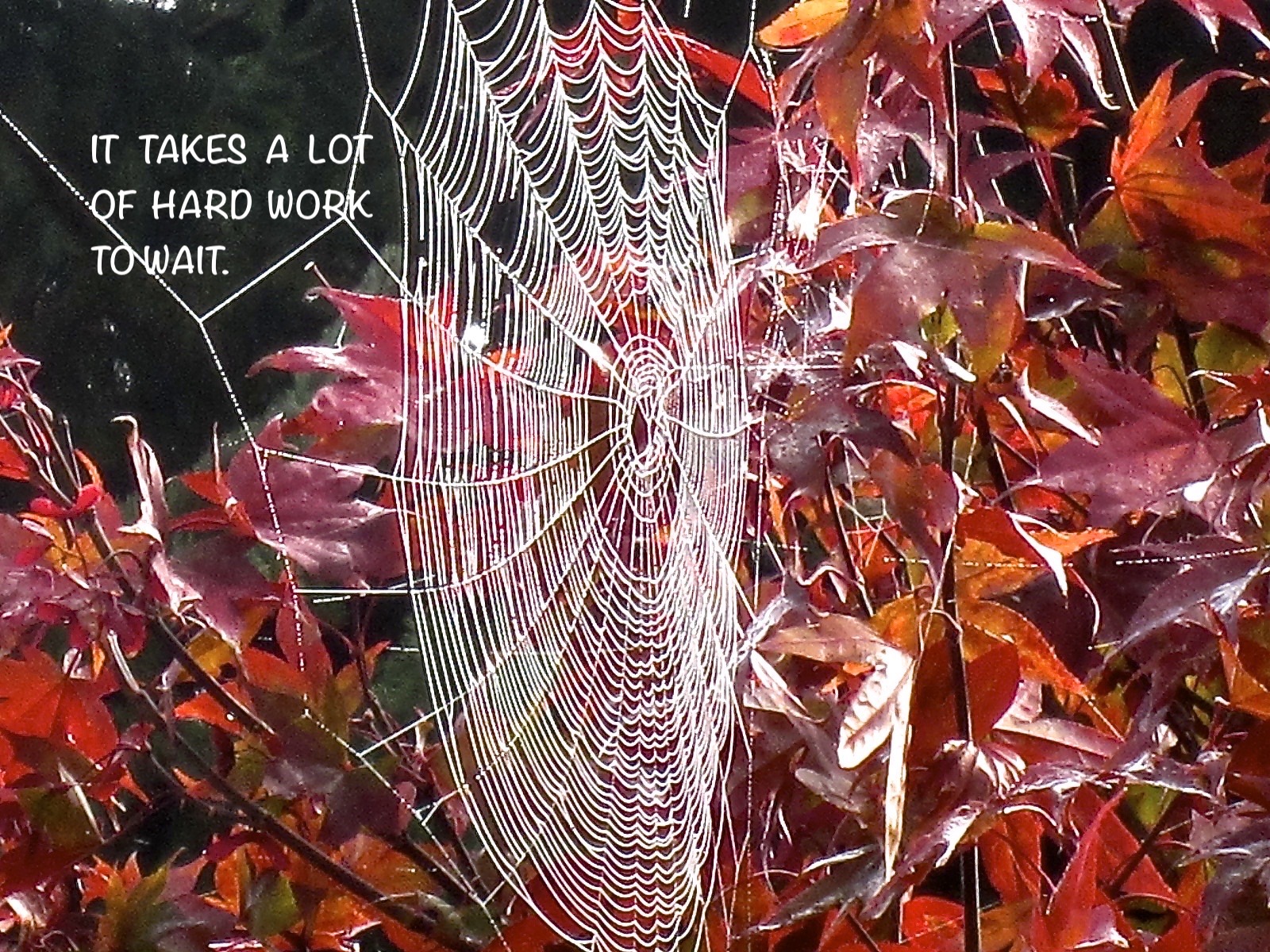By popular request, here is the original interview in English with Irma Kurti. If anyone speaks either language, let me know how she did!
Your poems have appeared in more than 150 journals throughout North America, Australia and the  UK and you have also published five poetry collections. Do you think poetry is a great means to convey a message to the people?
UK and you have also published five poetry collections. Do you think poetry is a great means to convey a message to the people?
I don’t write to convey messages. If readers find one in my work, that’s lovely. I write to see if I can capture the world — inside and out, past and present–in language and images that are new and fresh and give me joy. Perhaps that is the message: I want to share the blast of joy I experience when I’m writing and the simmering hope that someone will read my poems!
You are passionate about writing and photography. Any preference between the two? Do they complement each other?
I spend more time writing than photographing, but each activity has one thing in common: the call to pay attention. I feel I am more present to the world when I have a camera in my hand. Likewise, as I go through a day and experience my inner and outer worlds, I try to be aware of the sights, sounds, smells, touches that make this day unique. These details may find their way into a poem.
You are a poetry editor of Kosmos Quarterly: journal for global transformation and you read a lot of poems every day. What is the impact of a beautiful poem on you?
When a poem makes me jump out of my chair or pump my fist in the air shouting “Yes! Yes! Yes!”, I know something special has happened. The language, form, and subject matter have drawn me in and shown me things I haven’t seen or heard before. When a poet can take a truth — even a difficult one — and create something beautiful out of it, I’m engaged and delighted.
We have been through a difficult period due to the pandemic. How did this affect your work as an author and editor?
Truthfully, the pandemic didn’t affect my writing or editing that much at all. Since both are solitary activities, I had more time to spend on them. Perhaps one of the best things that came out of this time was Zoom poetry readings. I attended more readings virtually during the pandemic than I had in person during the previous five years. To be able to read with or listen to poets from around the world was a gift. I hope this virtual option will remain available to us going forward.
May you share any advice for the poets, for those who want to dedicate themselves to writing?
I’d like to share three thoughts for aspiring poets:
- Read, read, read – but not only good contemporary poets. Read the recent masters who have stood the test of time like Frost, Yeats, Whitman, Dickinson, Bishop, Williams, and Eliot. We are standing on their shoulders and they provide us with themes and techniques we may want borrow and expand.
- Network, network, network. Go to readings, take a class, join – or create – a critique group. However, recruit people into your group who are knowledgeable about the craft of poetry. You want to spend time with poets who are already good writers and know what good writing is. Although it may be fun to hang out with those who will applaud everything you write, that may not be the best use of your time.
- This may sound counter-intuitive, but poets should challenge themselves to write about what they do not know. Science, art, music, cosmology, world religions, etc. offer images and ideas that will enrich anyone’s work. I remember reading articles that claim the sun rings like a bell, that North America moves closer to Japan by three inches each year, and that there’s a species of frog that listens with its mouth. Each of those images delighted me and worked their way into poems. I couldn’t make them up!
What is your routine for writing?
I am totally undisciplined, so routines vary. One thing I have latched on to: Before I start a new poem, I re-read a few recent ones to see if they need any tweaks (They usually do!) That often jumpstarts working on a new piece.
Also I keep lots of files. One is filled with the “Word of the Day” from Dictionary.com. I’ve had fun filling my poems with the extraordinary vocabulary I find there. I have a file brimming with quotations on any topic I come across in my reading or watching TV (Yes, I do!). I have files filled with phrases or lines that pop into my head and I don’t want to lose them. Many have found there way into my poems.
If you are blocked, what do you do?
For years, whenever I hit a fallow period, I thought I’d never write again. These times could last for weeks or months – and that was discouraging. However, once I realized there was a rhythm to my writing life, I was able to ease in and out of these blank-page times with less angst. What I substituted for writing was gardening, photography, and all kinds of crafts.
See, I believe we create or we die, and one type of creativity leads to another to another to another. Of course, when you’re not writing, you’re reading and observing. You’re amassing those files of new words, quotations, snippets of conversation you’ve overhead: all gems that may sparkle when the time and energy to write returns – and it will.

Leave a Reply